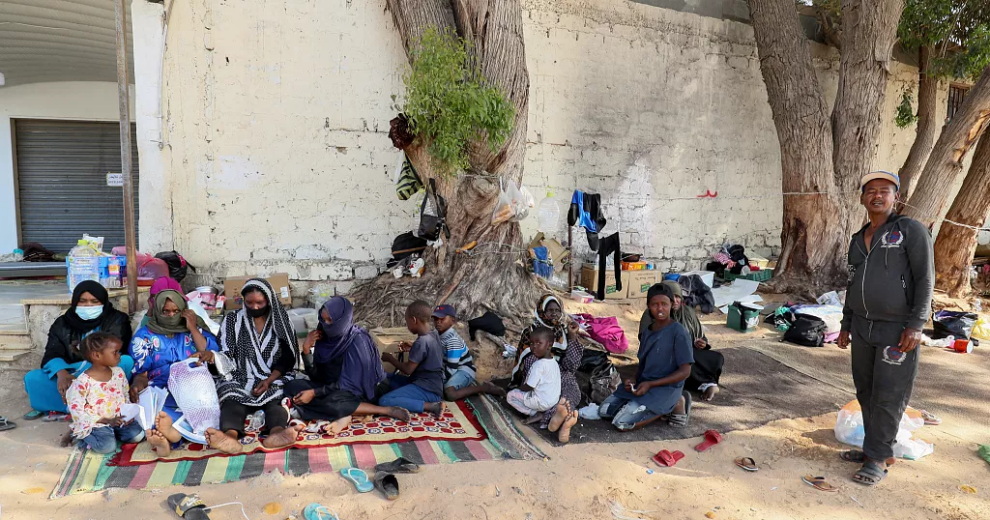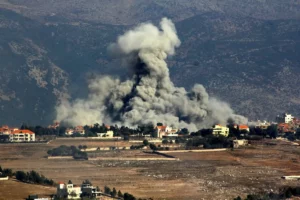Large uncounted numbers of Sudanese refugees who flowed into Libya to escape the ongoing fighting in their country are still living in temporary accommodation.
Sudanese refugee, Nour Ismail, who came with his family from Khartoum hoping to find a safe haven for him and his family in the Libyan capital, Tripoli. He was able to escape the war and reach Libya safely last May.
Sudan has been rocked by violence since April 15, when tensions between the military and the paramilitary Rapid Support Forces burst into open fighting.
The conflict has killed more than 3,000 people, according to data from June, though the actual death toll is likely much higher, doctors and activists say.
Speaking to The Associated Press, Nour says that he lost his parents because of the fighting, and he was injured in the war, and now he needs an urgent operation on his leg to save it from amputation.
He claims that despite his pleas for help since he arrived in Libya in May, the United Nations High Commissioner for Refugees (UNHCR) “did not care about us”.
“We eat from the streets. Some people feed us while we’re on the streets (charity givers),” he said.
Meanwhile, he is still attempting to get the attention of the United Nations, asking them to “pay attention to our problems”.
“We want them to provide us with a place to shelter us. We, as Sudanese refugees, have come here to apply for asylum, and we do not want to stay here in Libya. We only ask for asylum from organizations. We want to go anywhere safe,” he said.
While many refugees have had to flee to neighbouring Libya out of necessity, the country faces is embroiled in political crises, and a divided government is struggling to tackle living conditions among its people.
On July 12, the United Nations said the raging conflict in Sudan had driven more than 3.1 million people from their homes, including over 700,000 who fled to neighboring countries.
Source : AFRICANEWS

















Add Comment